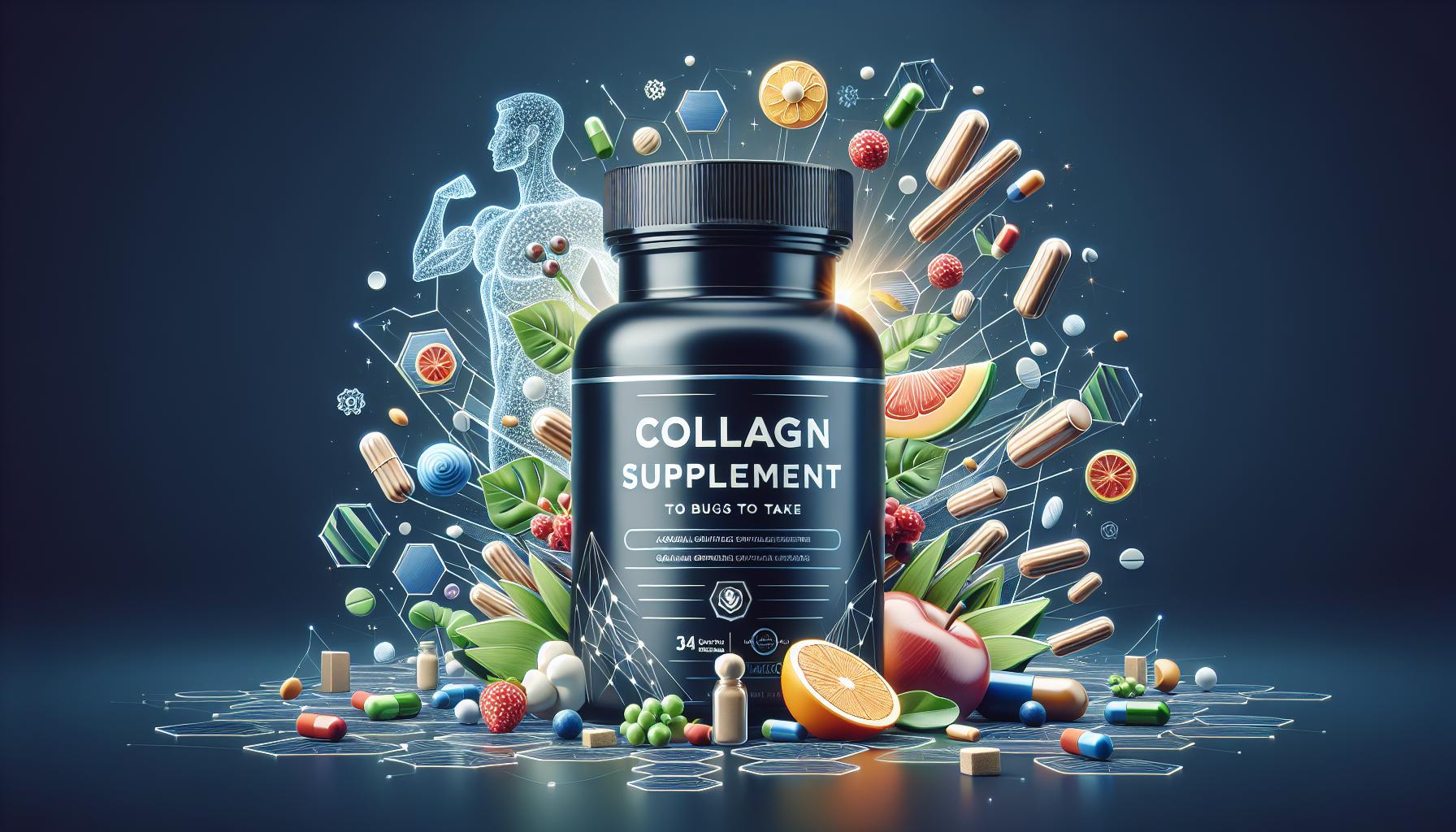What’s the Winning Choice? Unraveling the Mystery of the Best Collagen Supplements
You’ve likely been caught in the collagen craze, the protein-packed power player promising to preserve your youthful glow and revitalize your ravaged joints. But with an overwhelming array of options at your fingertips, you may find yourself asking, “What exactly is the best collagen supplement to take?”
The answer lies not just in the brand, but in the type of collagen, the delivery method, and the sourcing of the product. In essence, the best collagen supplement would be a high-quality blend of Types I, II and III, housed in a digestible form like a powder or liquid, obtained from organic, hormone-free sources.
In this comprehensive guide, we’ll dissect the details of the collagen supplement scene, uncovering the cream of the crop, and brushing aside the chaff, providing you with all the insight you need to make an informed decision.
Bountiful Benefits of Collagen and Why It Matters
We’ve seen collagen grace the glossy pages of beauty magazines as the ultimate anti-aging agent. However, this versatile protein does more than just smooth wrinkles and plump lips. It’s the body’s scaffolding, providing structure to our bones, joints, muscles, skin, and nails. A boosting dose of collagen can enhance skin radiance, bone density, join flexibility, and overall vitality.
The catch? Our natural collagen production slows as we age, a clear case of cruel irony. But take heart, collagen supplements can come to the rescue, replenishing our lost reserves.
Reading between the Labels and Marketing Hype
Scouring through shelves of collagen products, you’ll encounter Types I, II, III and beyond, encased in capsules, powders, or elixirs, sourced from cows, fish, chickens or plants. It’s a dizzying dance of details. Understanding these elements is key to cutting through the fluff and making the best choices for your wellness needs.
Demystifying the Collagen Types
Generally, Types I, II, and III are the stars of the show. Type I forms the majority of our skin, hair, nails, and bones; Type II offers relief to weary joints; and Type III supports our organs and arteries. A supplement incorporating these three types covers most of our collagen needs.
A Dose of Discretion in Delivery
The delivery of collagen matters, too. Studies point to powders and liquids as the most bioavailable forms, meaning your body can absorb them more easily. Capsules sound convenient, but our bodies might struggle to break them down, causing us to miss out on their potential benefits.
Sourcing: The Silent Stakeholder
The source of the collagen in your supplement is its silent stakeholder. Bovine collagen is often noted as the highest in quality, especially when sourced from grass-fed, free-range cattle. Marine collagen, derived from fish, is the second-best due to its environmental impact. Chicken collagen, though a good source of Type II, has a controversial reputation due to the potential for hormone exposure in commercial poultry.
Plant-Based Collagen: Myth or Reality?
For the environmentally-conscious or the vegetarians, plant-based collagen supplements are on the rise. But beware, plants don’t produce collagen. These products simply contain the necessary building blocks to spur your body to make its own collagen.
Wrapping It All Up
Matching your collagen supplement to your wellness needs isn’t a cakewalk, but armed with this knowledge, you’re now equipped to make an informed decision. Remember, the best collagen supplement melds high-quality types, a digestible form, and ethical sourcing—a sweet symphony of supple skin, flexible joints, and boosted bone health.
Frequently Asked Questions
1. Can I take collagen supplements daily?
Yes, you can take collagen supplements daily. Just ensure that you adhere to the recommended dosage on the product label.
2. When is the best time to take collagen supplements?
Collagen supplements can be taken any time of the day, but taking them on an empty stomach may aid in absorption.
3. Are there any side effects to taking collagen supplements?
Side effects are rare but may include diarrhea, rashes, or a bad taste in the mouth.
4. Can vegetarians take collagen supplements?
There are plant-based collagen supplement alternatives which can help boost the body’s natural collagen production.
5. Is it safe to take collagen supplements while pregnant or breastfeeding?
It’s always best to consult with your healthcare provider before starting any new supplements during pregnancy or breastfeeding.


